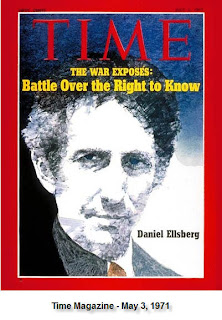(updated below)

Today, we are launching Salon Radio with Glenn Greenwald -- a regularly-scheduled program that will include interviews and discussions with political figures, journalists, activists and the like. For now, all of the segments will be recorded as podcasts and then posted on Salon every Monday, Wednesday and Friday at 2:00 p.m. EST. The segments will be between 30 and 45 minutes. Each new show will be posted on Salon's front page, posted here on my blog, and will also be permanently archived so that they can be heard at any time. You can subscribe to the show as a podcast via the iTunes Music Store, here (h/t rwanderman).
I'm really excited about the opportunities this can create to expand and deepen the coverage of issues beyond what is possible from writing alone. Although the podcast show will function as a stand-alone entity, my intent is that it will supplement much of what I write about by enabling me to interview, debate or otherwise engage with people on issues that relate to what I write about. I intend to make it a regular practice to invite onto the show anyone who is criticized here -- journalists, political figures or anyone else -- in order to discuss and debate those critiques.
Salon has invested a substantial amount of time and resources in order to ensure a high-quality technical presentation, but the technical aspect -- like the show itself -- is still a work in progress. With each segment that we do, we'll be able to improve the sound quality and other aspects of the podcast, including enabling other bloggers to embed parts of the segments. And as I do more of these, I'll be able to figure out the optimal uses for this format.
* * * * *
For the debut segment today, I spoke with Daniel Ellsberg, one of the very few people in America who really merits the term "political hero." During the Vietnam War, Ellsberg -- a Harvard graduate, former U.S. Marine, top aide to Defense Secretary Robert McNamara, and State Department official in Vietnam -- had a Top Secret security clearance as a result of his high-level work on the Vietnam War with the Nixon administration and the Rand Corporation, when he obtained the now-famous "Pentagon Papers," which revealed that the U.S. Government, throughout the 1960s, knew that the Vietnam War could not be won, yet continued to deceive the American public as it escalated the war.
 Knowing that he was risking life imprisonment, Ellsberg leaked the Pentagon Papers to the New York Times in an attempt to alert the public to what the Government was doing (he did so only after numerous members of Congress refused his pleas to make those documents public). The NYT then waged an epic battle with the Nixon administration for the right to publish those papers, resulting in one of the most important First Amendment victories in Supreme Court history. For his efforts, Ellsberg was subjected to extensive warrantless eavesdropping by the Nixon White House, had his psychoanalyst's office invaded and searched at Nixon's behest in an attempt to obtain incriminating information about him, and was arrested and then brought to trial where he faced life imprisonment for having leaked the report (though the charges were ultimately dropped as a result of the Nixon administration's misconduct towards him).
Knowing that he was risking life imprisonment, Ellsberg leaked the Pentagon Papers to the New York Times in an attempt to alert the public to what the Government was doing (he did so only after numerous members of Congress refused his pleas to make those documents public). The NYT then waged an epic battle with the Nixon administration for the right to publish those papers, resulting in one of the most important First Amendment victories in Supreme Court history. For his efforts, Ellsberg was subjected to extensive warrantless eavesdropping by the Nixon White House, had his psychoanalyst's office invaded and searched at Nixon's behest in an attempt to obtain incriminating information about him, and was arrested and then brought to trial where he faced life imprisonment for having leaked the report (though the charges were ultimately dropped as a result of the Nixon administration's misconduct towards him).
In countless ways, Ellsberg embodies exactly what our political system has been so conspicuously and tragically lacking, and he has become one of the most insightful analysts of our current political crisis. My discussion with Ellsberg can be heard here by clicking PLAY below.
UPDATE: The transcript of this interview is here.



Shares